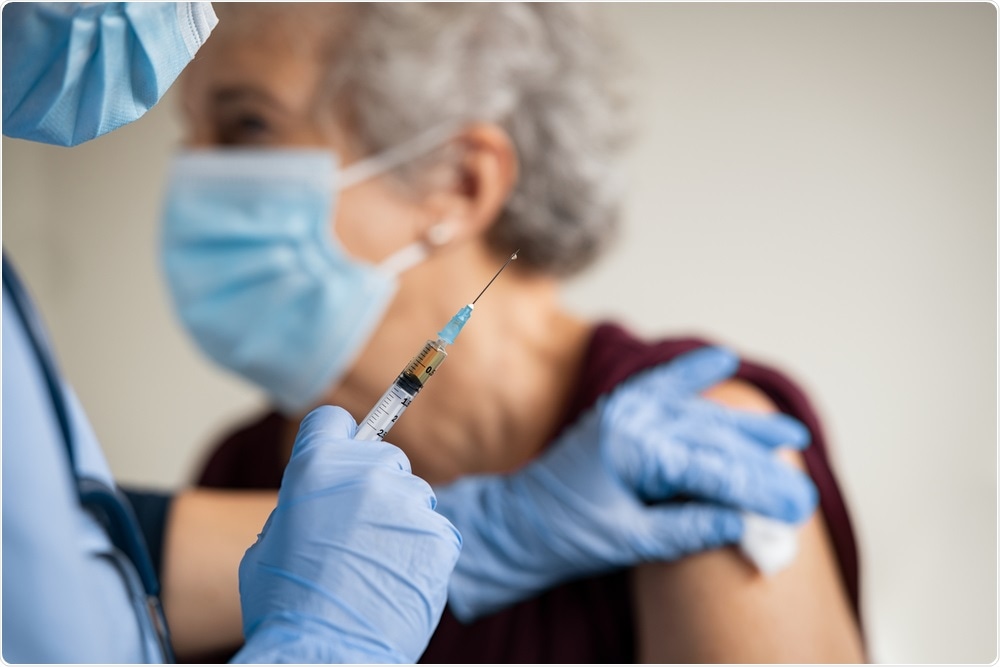With the emergence of new variants, unpredictable travel restrictions, and lockdowns, a new analysis demonstrates vaccination rate is key to the successful relaxation of restrictive policies.

COVID-19 Vaccination. Image Credit: Rido/Shutterstock.com
Towards a better understanding of transitions out of COVID-19
Researchers from the Max Planck Institute for Dynamics and Self-Organization located in Germany, including Simon Bauer, Viola Priesemann, and colleagues, published findings in the journal PLOS Computational Biology on the reopening of countries amid the COVID-19 pandemic.
Specifically, the team of scientists used European countries as a case study to determine the factors contributing to the safe reopening of countries.
Vaccination efforts amid the COVID-19 pandemic have begun over a year ago, and vaccination programs around the world have alleviated some pressure from hospitalizations and allowed countries to lift some of the restrictions that have had negative social and economic consequences.
However, research has focused primarily on vaccine prioritization and rollout policies as well as how to control the spread of infections, and few studies have considered how to plan the transition from an unprotected population to eventual population immunity.
This transition has widespread implications and lasting effects as many countries are now experiencing renewed lockdowns due to the emergence of variants, demonstrating the relevance of implementing transitional policies.
To address this gap in knowledge, Bauer and colleagues used mathematical modeling on vaccination data from Germany, France, the U.K., and other European countries to quantify the pace of vaccination efforts to lift restrictions to minimize the risk of rebound COVID-19 waves.
Researchers used an analytical framework on population data integrating compartment models based on age-stratified data that had a 2-dose staged vaccine rollout, population immunization delays, number of intensive care unit (ICU) hospitalizations, and total deceased individuals.
Models were then run with the threshold of ICU beds present in each country, which would overwhelm hospitals and represent the failure of a successful reopening.
Further evidence advocating for vaccination efforts, but not only
The models developed a variety of plausible scenarios, from which the researchers concluded that severe waves post-lifting of restrictions can only be avoided if restrictions are lifted no faster than the pace dictated by vaccination progress.
If restrictions are lifted faster than vaccination pace, there is no gain of freedom under any other scenario. Even after 80 percent of the adult population has been vaccinated, novel, more infectious variants could generate a new infection wave and overwhelm intensive care units if all restrictions are lifted.
In such an event, restrictions would quickly have to be reinstated, thus quickly vanishing the mirage of freedom. Furthermore, an early lift would have high morbidity and mortality costs. Meanwhile, relaxing restrictions at the pace of vaccination shows almost the same progress in ‘freedom’ while maintaining low incidence.”
Priesemann
The findings provide key insight into the implications involved for policymakers when deciding to relax restrictions. Despite public pressure, the results show policies should not act too fast, and only at high vaccination rates can restrictions be gradually relaxed.
Moreover, the researchers also advocate for preventative measures to reduce contagion in areas of high risk of infection spread, including schools. The authors discuss how children might be drivers of contagion and may compromise restrictions rapidly as shown in the mathematical models, requiring policies to implement adaptive measures and not solely rely on vaccination effort.
Further research is necessary to design optimal scenarios of transitional policies from a global perspective, and future studies could consider how regional factors can affect such transitions and whether population-level thresholds in safety could be improved amid new variants.
Journal reference:
- Bauer S, Contreras S, Dehning J, Linden M, Iftekhar E, Mohr SB, et al. (2021) Relaxing restrictions at the pace of vaccination increases freedom and guards against further COVID-19 waves. PLoS Comput Biol 17(9): e1009288. https://doi.org/10.1371/journal.pcbi.1009288